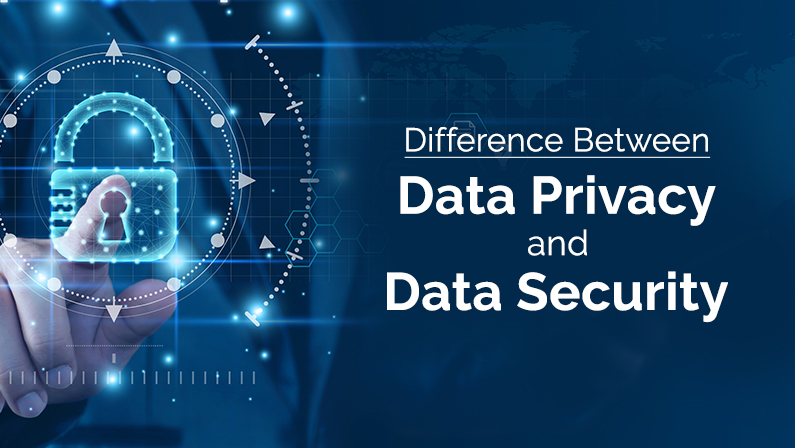In simple terms, data privacy and data security are two sides of the same coin. Achieving data security doesn’t ensure data privacy and vice versa, but both are required to establish a comprehensive data protection strategy.
Let’s distinguish between the two concepts with a hypothetical example: assume you own a laptop, where you store personal identifiable information (PII). To avoid someone from accessing your files, you pasted a sticker reading: ‘Do Not Touch or Look’ (Data Privacy). To add an extra layer of privacy, in case people don’t read or ignore the sticker, you locked the computer with a secure password (Data Security).
There are two things to note here. First, the ‘Do Not Touch’ sticker tells people to keep away from your laptop, thereby authorizing your privacy. Second, the password ensures no one can access your data, thereby protecting your data from unauthorized access. How do data privacy and data security differ:
Data Privacy |
Data Security |
|
| Objective | These various rules give individuals the right to know what information is collected, why it’s collected and how it’s processed, which is done to protect and enhance consumer and personal privacy | Data security is the process of protecting information from unauthorized access, data corruption and data loss. It is concerned with what an organization does with the data collected, where and how the data is stored, and regulates who can access the information |
| Focus | Data Privacy focuses on how information collected, processed, stored and disseminated, for purposes of ensuring data is responsibly handled | Data Security is focused on protecting your organization’s assets. A comprehensive data security strategy will help prevent data breaches, ensure business continuity and keep your company’s data safe from cyberthreats. |
| Regulations | General Data Protection Regulation (GDPR), California Consumer Privacy Act (CCPA), Health Insurance Portability and Accountability Act (HIPAA), Payment Card Industry Data Security Standard (PCI DSS), Children’s Online Privacy Protection Act (COPPA) | Depending upon the purpose, type of industry or geographical location, your business can implement security compliance frameworks and international standards, such as National Institute of Standards and Technology (NIST), the International Organization for Standardization (ISO) and Payment Card Industry Data Security Standard (PCI DSS). |
| Importance | Data privacy is an individual’s right to control who has access to personal information and how it may be used. This also protects personal information from being sold or redistributed to third parties. | These frameworks provide guidance and best practices for information security to help you assess IT security measures, manage risks, respond to security incidents and improve your information security management system. |
| Implications | It is the organization’s responsibility to protect and preserve their clients’ sensitive information. Not having a privacy policy in place or failure to comply with privacy laws can lead to serious consequences, apart from legal actions and financial loss | Data security is critical for the smooth functioning of day-to-day operations and running a business successfully. Failure to protect your organization’s confidential data can damage your brand’s value, result in regulatory penalties or shut down your business. |
How to Achieve Data Privacy and Data Security While Being Legally Compliant
Ensuring data privacy and data security, while complying with related laws and regulations, is challenging. Even large organizations struggle to understand and implement appropriate security management and compliance measures.
This does not have to be so for your organization! To learn how you are able to maintain compliance for data privacy and data security, please contact us today, and together we will walk forward on the path, to achieving data privacy and data security.





